
Cassie Whalen
Writer & Email Coordinator
Institute for Humane Studies
Cassie Whalen is a Writer and Email Coordinator for the Institute for Humane Studies. An alumna of IHS Summer Seminars, the Koch Internship Program, and the Koch Fellowship Program, she graduated with a BA in economics from George Mason University in August of 2014. She enjoys writing both for business and pleasure. Though as a military brat she’s moved 7 times between 5 states, her favorite place to live is northern Virginia, where she can always find good Indian food.
Blog Posts

6 women who should be on the $20 bill
March 29, 2017
|History
In honor of Women’s History Month and the fight to get a woman on the $20 bill, we reached out to Learn Liberty professors for suggestions on great women whose achievements should earn them a place on US currency. So, in no particular order, here are five worthy women who should be on twenties: Anne Hutchinson Submitted by Prof. Sarah Skwire, Anne Hutchinson was an active religious leader and proponent of religious freedom in the American colonies. As Prof. Skwire wrote: I'd vote for putting Anne Hutchinson on the $20. Her home bible studies, her active preaching, and her theological disputes

The most important part of networking
February 20, 2017
|Uncategorized
So you went to a networking event. You met a lot of new people, delivered your elevator speech a few dozen times, and came home with fistfuls of business cards. Networking accomplished, right? Not quite. You can’t forget the most important part of networking: following up. Briefly meeting someone at an event barely makes an impression, let alone a strong addition to your professional network. If you truly want to develop lasting, fruitful professional connections, you’ll need to follow up. Here’s how: Follow up as soon as possible. Try to follow up within a few days of the event. While

The introvert’s guide to ISFLC
February 13, 2017
|Uncategorized
The International Students For Liberty Conference brings together hundreds of student leaders from around the world for a weekend full of talks, events, and networking. It’s a unique and wonderful experience—but it can also be intimidating, especially for introverts. It doesn’t have to be that way. A little planning and preparation go a long way to turn what could be an overwhelming experience into an extremely rewarding weekend. Here are six techniques for introverts to help you enjoy all the conference has to offer without collapsing from exhaustion: 1. Make reasonable, achievable goals. You

7 wardrobe mistakes to avoid at ISFLC
February 6, 2017
|Uncategorized
The International Students For Liberty Conference is coming up. It’s a fantastic opportunity to meet student leaders and professionals who are excited about the ideas of freedom, and discover opportunities to get involved in promoting a free society. You could meet the internship coordinator for your favorite organization, your future employer, or even a professional mentor. So don’t you want to make a good impression? I’ve attended ISFLC several times over the years, as both a student and a representative of Learn Liberty, and I’ve learned quite a bit about making good impressions. Below

How ISFLC helped me land a Cato internship
February 4, 2017
|Uncategorized
Why getting an internship at the Cato Institute is so difficult If you’ve thought about a career in policy analysis, you’re probably heard of the Cato Institute. If you’re serious about a career in policy analysis, you may even have applied to their internship program. In addition to being perhaps the most well-known libertarian think tank in the U.S., the Cato Institute also runs an extremely rigorous internship program. It’s also extremely competitive. The summer term is more difficult to get into than Harvard, to give you an idea. I myself was rejected twice before finally being accepted

Visit Cuba? The pros and cons of American tourism
October 14, 2016
|Uncategorized
Americans tourists can now (somewhat*) legally visit Cuba for the first time in over 50 years. The relaxation of tensions with Cuba under the Obama administration has led to fewer restrictions on travel to Cuba from the United States, including new opportunities for cruise lines to sail to the island nation and daily commercial flights by a range of American airlines. For decades, such travel was illegal for US citizens. The embargo on Cuba, instated in the early 1960s, has heavily restricted travel and trade with Cuba, and for many years the United States was committed to maintaining these restrictions

Protect Pangolins: Promote Trade, Don’t Ban It
October 9, 2016
|Role of Government
The Convention on International Trade in Endangered Species of Wild Fauna and Flora, or CITES, recently banned the commercial trade of pangolins, a small mammal which resembles “an artichoke with legs” according to NPR. The pangolin is currently in danger of extinction. Pangolin scales have long been used in traditional Asian medicine, and in recent years pangolin meat has come to be viewed as a delicacy in several countries. This growth in demand has led to a hug rise in poaching and dramatic declines in pangolin populations. The pangolin’s natural population can’t keep up with the growth

Kristen Bell Criticizes Wage Gap, Unintentionally Debunks It
October 8, 2016
|Basic Economics
In a video for the Huffington Post, actress Kristen Bell mocks the gender pay gap, asking: “Why outsource all your production to faraway countries like India, China, and Narnia when we have the cheapest and best workforce right here in the good ol’ U.S. of A.? Women.” In the video, Bell advertises “Pinksourcing”—outsourcing work to women to save money, because you can pay them less than men. But as economics professor Donald Boudreaux points out at Cafe Hayek, the very fact that this “Pinksourcing” organization is fictional suggests that women aren’t generally underpaid for doing

The Police Know Where You Live
October 7, 2016
|Criminal Justice
An Associated Press investigation has revealed that, across the United States, police officers abuse their access to confidential databases to look up information on neighbors, love interests, politicians, and others who had no connection to a criminal investigation. The databases house intensely personal information—not just criminal histories, but car registration, home addresses, phone numbers, and more. According to the Associated Press, officers across the country have used the databases for a wide variety of unauthorized purposes, including stalking ex-girlfriends, looking up personal

Should Paid Surrogacy Be Illegal?
October 6, 2016
|Free Markets and Capitalism
NPR’s Goats and Soda recently covered a debate in India over surrogacy. In India, there is a thriving industry of women who are paid to be surrogate mothers, carrying another couple’s children. Many surrogates are impoverished women, and there are growing concerns that paying poor women to be surrogates amounts to exploitation. Some are calling on the government to outlaw paid surrogacy, leaving only “altruistic” or unpaid surrogacy. Aspects of the Indian system are deeply flawed. The NPR reported how many women failed to receive the payments they were promised, were misled about procedures,

5 Myths About School Choice
September 20, 2016
|Education
Last month, Last Week Tonight host John Oliver covered charter schools, calling for more government oversight. While Oliver explicitly declined to discuss “whether or not charter school are a good idea in principle,” his focus on failed and mismanaged charter schools has upset many charter school supporters and re-ignited debates about the value of school choice. To help you better understand the ongoing debate, we want to dispel some common myths about school choice. But first: What is school choice? School choice isn’t just about charter schools. It refers broadly to a range of options
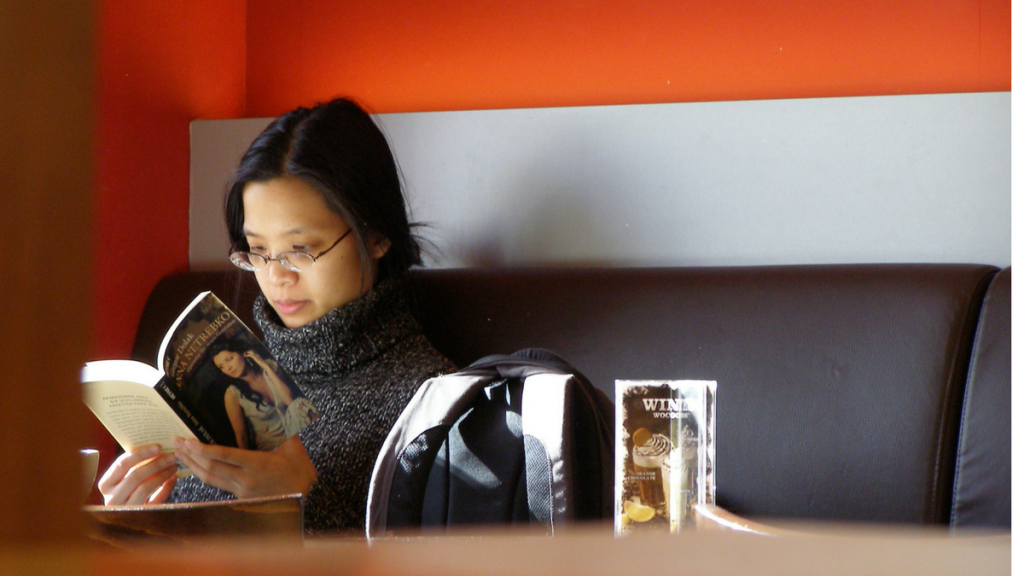
Are Novels Cultural Appropriation?
September 18, 2016
|Free Speech
Author Lionel Shriver’s keynote address at the recent Brisbane Writer’s Festival has sparked heavy criticism. Shriver, best known for her book “We Need To Talk About Kevin”, spoke out against criticisms of authors based on cultural appropriation. The concept of cultural appropriation is divisive: some view it as oppression by majorities who adopt or appropriate aspects of a minority culture, while others see it as a natural blending of culture through free expression. The concept has created debates over everything from Halloween costumes to Miley Cyrus’s dancing. In Shriver’s case,

You Might Be Fined for Selling Your Car
September 17, 2016
|Uncategorized
After putting a “For Sale” sign in the window of his car, which was parked on the street outside his home, Michael Cefali was surprised to receive a $50 ticket from the city of San Juan Capistrano. According to the Orange County Register, Cefali violated a city code which “prohibits the parking of a vehicle on a city street to display it for sale, hire or rental, or for painting or repairs.” While the assistant city manager has stated that the code is meant to “prevent blight” and “ensure adequate residential parking”, Cefali argues that the code violates his freedom of speech. In

Are Giant Rats Free Speech?
September 13, 2016
|Free Speech
Are giant rats free speech? This is the question at the heart of an ongoing suit in against the town of Grand Chute, Wisconsin. As a form of protest, unions will place giant, inflatable "union rats" in front of businesses they have disputes with. In Grand Chute, the town ordered that one of these rats be removed, citing safety and construction ordinances. The Associated Press reported that while a lower court sided with Grand Chute, an appeals court judge wrote that removing the giant rat violated the union’s right to free speech, calling the inflatable rodent “akin to a political poster.” Many
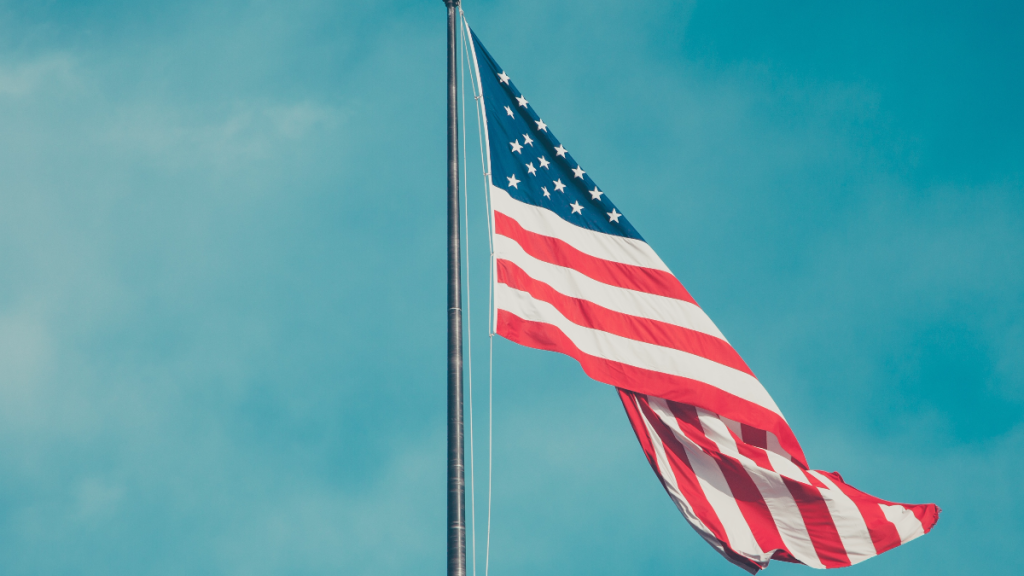
Colin Kaepernick and the Freedom Not to Speak
September 7, 2016
|Free Speech
San Francisco 49ers quarterback Colin Kaepernick has sparked controversy by choosing not to stand for the national anthem. Despite shock and outrage, Kaepernick has defended this decision, telling NFL media: "I am not going to stand up to show pride in a flag for a country that oppresses black people and people of color. To me, this is bigger than football and it would be selfish on my part to look the other way. There are bodies in the street and people getting paid leave and getting away with murder.""] While Kaepernick has been criticized for expressing his views this way, there’s no doubt

Dear France, Stop Encouraging Terrorism and Oppressing Women
September 5, 2016
|Free Speech
Despite a French court’s ruling striking down burkini bans, several French mayors have stated that they plan to . Supporters view the ban as a stand against radical Islam, with one French mayor calling the burkini the affirmation of political Islam in the public space”. Others see the burkini as a form of oppression for women. But does banning burkinis really solve those problems? Does it undermine Islamic extremism or protect women’s rights? Islamic Extremism Muslim women wearing burkinis, or even regular clothing with headscarves, have been accosted by police, told to change their clothes,

How Free Speech Protects Property
September 3, 2016
|Free Speech
Does a ban on signs on the beach infringe on property rights? Edward and DeLanie Goodwin, in partnership with the Pacific Legal Foundation, argue that it does, and have filed a lawsuit with Walden County, Florida. Walden County recently banned all signs on private beach property—this includes “Private Property” and “No Trespassing” signs meant to denote property lines. For people like the Goodwins, whose private beach property is in close proximity to a public beach, the ban on signs means they can’t ward wandering beachgoers away from their property. This likely isn’t an accident.

Why I'm Thrilled That There Are More Startups Than Ever and Most of Them Fail
September 1, 2016
|Basic Economics
Why do startups fail? For the same reason markets succeed, as a recent post by Tim Worstall of the Adam Smith Institute explains. Looking at the phenomenon of “unicorns”—private companies valued at over $1 billion dollars—Worstall notes that the vast majority of startups fail. The most common reason they fail? Their business models weren’t viable. This is actually good news. The market process, and the failure of startups, shows that people are experimenting. They’re trying revolutionary new ways to solve problems. Often, they fail—but other times, the success radically improves everyone’s

Will This News Stop You From Protesting?
August 31, 2016
|Free Speech
Earlier this month, the FBI released footage of the protests in Baltimore following the death of Freddie Gray filmed from the Bureau’s surveillance aircraft. While the FBI spy planes were called in to help police deal with the violent riots which broke out in Baltimore, the FBI also recorded hours of footage of peaceful daytime protests which took place before curfew. Although the protesters were out in public and could expect to be filmed, they likely didn’t anticipate being filmed by FBI surveillance planes. As an ACLU attorney told BuzzFeed news, when the FBI is recording hours of peaceful

How Far Does $100 Get You In Your State?
August 24, 2016
|Basic Economics
If a Nebraskan and a Californian each earn $50,000 in a year, which person is richer? If you said “neither,” guess again. The Nebraskan is richer. How is that possible when both people have $50,000? The difference in wealth is caused by the difference purchasing power. Purchasing power is a currency’s value in terms of how much that money can buy—in other words, the bang for your buck. $100 gets you a lot more in places where food, housing, and other necessities are cheaper, and a lot less in places where those things are more expensive. It’s why someone making $50,000 in New York might

Suspended Licenses Are The New Debtor’s Prison
August 23, 2016
|Criminal Justice
Last month, a class action lawsuit was filed challenging the state of Virginia’s practice of suspending driver’s licenses over unpaid fines. Over 900,000 Virginians, or about 11% of the population, have suspended licenses. While some of those suspensions come from driving-related offenses, the majority of licenses were suspended because of unpaid court debts. The goal of suspending a driver’s license for unpaid debts is to give people more incentive to pay. But when people are unable to pay their court debt and their license is suspended, they actually become less able to pay. People who

What You Need to Know About the Justice Department Prison Announcement
August 22, 2016
|Criminal Justice
In August, the Justice Department announced its plans to end the use of private prisons on the federal level. This has been celebrated as a large step towards solving the US’s mass criminalization problem. But is it? Of 211,000 federal prisoners, only 16%—just over 3,000— are housed in private prisons. The other 78,000 U.S. prisoners in private prisons reside in state prisons, and are unaffected by the Justice Department decision. It’s not clear that eliminating private prisons on the state level would alleviate mass incarceration or greatly improve prison quality. The problems of overcrowding,

Rio’s Olympic Hangover
July 31, 2016
|Gov't Debt & Spending
The opening ceremony for the 2016 Olympics, hosted in Rio de Janeiro will take place this Friday. The celebrations, however, are clouded by the problems that have pervaded Rio all summer, problems that have been highlighted by preparations for the Olympics. Several prominent athletes have declined to participate in the games over fears of the Zika virus, which has been linked to birth defects. There are other health concerns besides Zika, however—there’s also the issue of raw sewage flowing into the waters where athletes will be competing. There are also budget woes. While many host cities

A Rule Meant to Reduce Neurosurgeon's Fatigue Went Terribly Wrong
July 27, 2016
|Healthcare
Richard Menger, a neurosurgery resident at Louisiana State University’s Health Sciences Center, tells a surprising tale in an article for the Foundation for Economic Education: how a rule meant to reduce doctors’ fatigue made neurosurgery less safe. The rule was made with good intentions. Tired doctors are more likely to make mistakes, so by limiting the hours medical residents are permitted to work in a given week, there should be fewer tired doctors making fewer mistakes. The good intentions didn’t lead to good results, however: A landmark study in 2012 found that duty hour restrictions

It's Time to Stop Banning Child Labor, and This Is Why
July 24, 2016
|Poverty & Inequality
A recent article at the Foundation for Economic Education tells the story of Rocky Peter, and how he became an American musician after a childhood of labor in Nigeria. As a child, Rocky and his brother had to work to support themselves. Rocky worked on farms, construction sites, and as an indentured servant to earn money for school and food. After years of hard work, Rocky managed to learn English and immigrate to the United States. When told stories like this, many condemn child labor. Activist push for bans on child labor, or for boycotts of countries or companies which produce goods with child

How Government Helps White Criminals
June 26, 2016
|Uncategorized
In an attempt to help black people and ex-convicts land jobs, policymakers have increased the employment prospects of white ex-convicts. Professor Alex Tabarrok explains this case of public policy’s unintended consequences in a post over at Marginal Revolution. The policy: Policymakers banned the “Have you ever been convicted of a felony?” box from job applications. This was intended to help ex-convicts get jobs in particular, and to help black people, who are more likely than white people to have a criminal background. The result: Racial discrimination in callbacks for job applications went
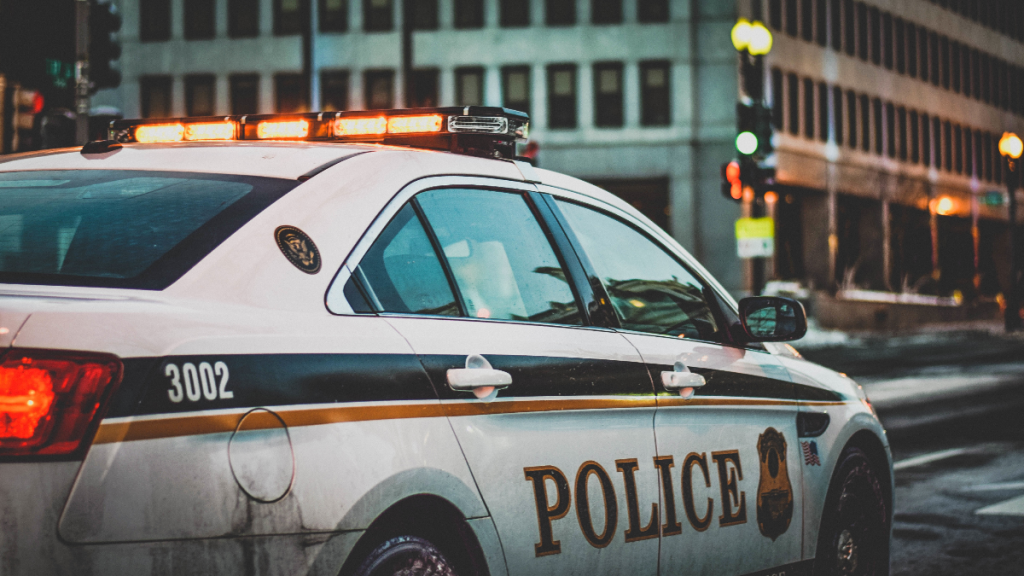
Supreme Court Opens Door for More 'Stop-and-Frisk'
June 24, 2016
|Criminal Justice
This week, in a 5-3 decision, the U.S. Supreme Court ruled that evidence obtained in unlawful stops can be admitted in court if the person being searched has a warrant out for their arrest. This contrasted the lower court’s decision, which stated that the 4th amendment prevents illegally-obtained evidence from being used at trial. The case dealt with Edward Strieff, who was unlawfully stopped by police. During the stop, police discovered that Strieff was carrying drugs and drug paraphernalia. Under normal circumstances, this evidence wouldn’t be allowed in court because Strieff was stopped

Your "Right to Vote" Includes a Right That Most People Don't Think About
June 11, 2016
|Voting
There are many reasons to vote—or to decide not to vote. As we inch closer to November’s election, you might hear some of the common arguments in favor of voting: It’s your civic duty to vote Other people don’t have the right to vote, so you should exercise your right to vote People fought and died for your right to vote, and not voting is disrespectful of their sacrifice If you don’t vote, you can’t complain about the outcome of the election But these arguments overlook something critical: you don’t just have a right to vote, but also a right not to vote. Joel Bowman,

Government Neglects Public Parks, Raises Taxes, to Subsidize Private Stadium
June 10, 2016
|Lobbying & Special Interests
A county in Georgia is raising taxes in order to pay for public parks, even as it spends $400 million to fund a new stadium for the Atlanta Braves. Further, while citizens of Cobb County voted in favor of funding public parks, they weren’t given a say about building the stadium. As Reason reports: ...in a jaw-droppingly cynical act of crony capitalism and untransparent government, the county has found a way to come up with approximately $400 million in public funds to subsidize the new stadium being built for Major League Baseball's Atlanta Braves, even though it denied the public a vote in the

These 1970s Court Cases Give Police Your Location Data With No Warrant
June 3, 2016
|Uncategorized
An appeals court ruled recently that police don’t need a warrant to access your cell phone’s location data. Several cases challenging law enforcement’s warrantless access to location data have come up in recent years as cell phones technology advanced. The recent ruling, despite dealing with new technology, is based on a precedent set by court cases from the 1970s. As Reason reports: In Supreme Court cases from the 1970s, the court ruled that a person has no expectation of privacy for records or information that he or she voluntarily turns over to third parties. Back in the day, these cases
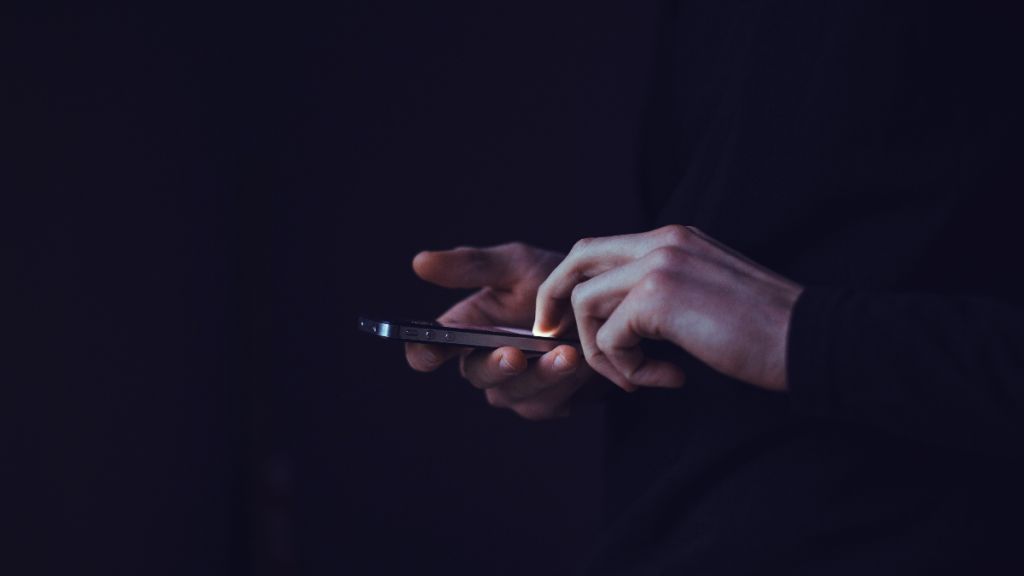
The FBI Still Wants to Read Your Email
|Uncategorized
Despite recent setbacks, the FBI is still trying to expand its power to access citizens’ communications. This time, it wants to read your emails. Not long ago, the FBI dropped its suit against Apple. The intelligence agency was demanding that Apple devise a backdoor into an iPhone—had the FBI won, it could have set a precedent that would impact both your privacy and your phone’s security. Now, the FBI wants easier access to your emails. Congress is currently trying to close a loophole which grants the government access to your emails with only a subpoena, instead of a warrant. Requiring a

You Keep Using the Word Capitalism…
June 2, 2016
|Uncategorized
We do not think it means what you think it means. There are a lot of polls about what millennials think about capitalism and socialism. According to these polls, millennials like socialism, but not capitalism. But what do they mean by capitalism and socialism? For reference, here are the definitions of capitalism and socialism according to Merriam-Webster’s dictionary: Capitalism: an economic system characterized by private or corporate ownership of capital goods, by investments that are determined by private decision, and by prices, production, and the distribution of goods that are determined

The Hidden Costs of Mandatory Maternity Leave
May 24, 2016
|Free Markets and Capitalism
A new bill has been proposed recently in the District of Columbia which would entitle employees to 12 weeks of paid leave when they have a child. Diana Furchgott-Roth, a Senior Fellow at the Manhattan Institute, responded with a thoughtful commentary urging people to remember who would pay the costs of this policy: DC businesses and taxpayers. While maternity leave is a desirable benefit, it comes with trade-offs. Someone has to pay for it. If that’s the government, then the leave comes at the expense of local taxpayers and businesses. If it’s businesses, they’ll have incentives to hire men

There's One Really Obvious Problem with Universal Basic Income
May 22, 2016
|Poverty & Inequality
Last year, we released this video comparing the benefits of government welfare programs to those of a universal basic income. Now, Preston Cooper of Economics 21 has pointed out one major downside of instituting a universal basic income: the difficulty of reform. Cooper outlines how the incentives of voters and politicians make benefits programs so hard to change over time: When programs benefit a limited group, it is sometimes feasible to change them. The welfare reform of 1996 is a good example. But a universal program, by construction, provides visible benefits to everyone. Even when a universal
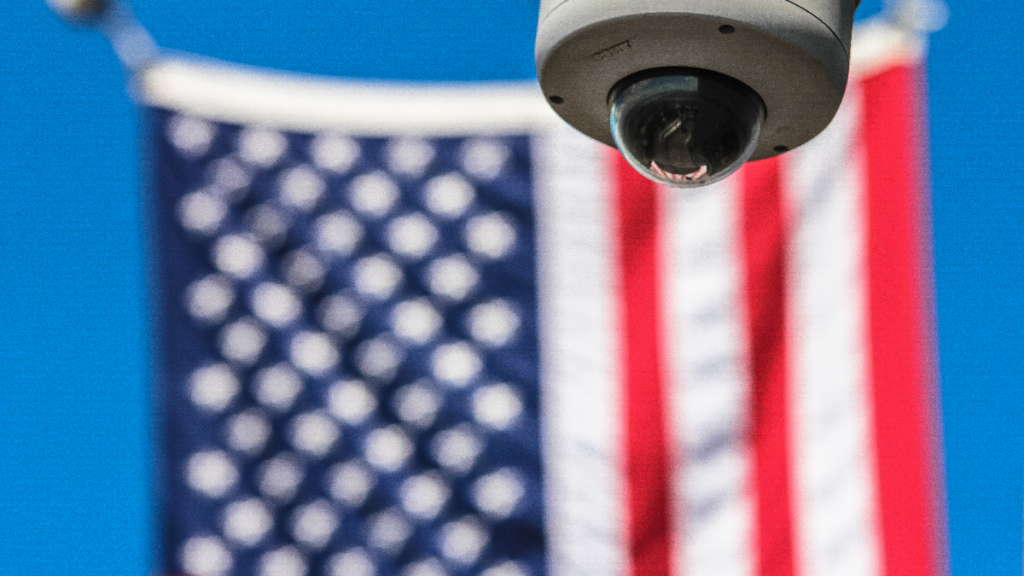
Debate Over Whether FISA Lets The Government Spy on Americans Set to Escalate
May 20, 2016
|Uncategorized
FISA (Foreign Intelligence Surveillance Act), the law which gives the government the authority to spy on foreigners outside the United States is set to expire next year, which means that the debate over government surveillance will once again be ramping up. The tension between government surveillance, citizens’ privacy, and national security has been an ongoing issue for years. From concerns over the Patriot Act, Edward Snowden’s leaks and the controversy over NSA surveillance, and more recently the FBI’s case against Apple over encryption, evolving technology is constantly raising new questions

WhatsApp, Encryption, and Your Right to Privacy
May 19, 2016
|Uncategorized
The messaging service WhatsApp has run into problems with the Brazilian government for failing to turn over data relating to a criminal investigation. With over one billion users, the wildly popular app features a major benefit that many governments disapprove of: it encrypts all messages sent through the app. This is only the most recent example of government pushback over encryption, coming not long after the FBI dropped its attempt to make Apple provide a backdoor to an iPhone as part of an investigation. Cases like this highlight the tension between government data gathering and citizens’

IDK, Not Trump Tho: Donald Trump and Democracy
May 17, 2016
|Voting
What’s the difference between a plurality and a majority in a democratic system? Professor Donald Boudreaux explains the huge difference in a recent post at Cafe Hayek by comparing the different voter preferences if Donald Trump wins 40 versus 60 percent of the votes in the Republican primaries. As Boudreaux writes: It’s a common (and understandable) mistake to read a vote cast for candidate A as being only a vote for candidate A. But a vote cast for candidate A might well be – and in practice certainly often is – motivated more by opposition to candidate B than one motivated by enthusiasm

The Danger of Safe Spaces
May 11, 2016
|Free Speech
In a recent commencement address at the University of Michigan, former New York City mayor Michael Bloomberg was booed after criticizing campus safe spaces. As Yahoo News reported: The whole purpose of college is to learn how to deal with difficult situations — not run away from them,” Bloomberg told the school’s graduating class. “One of the most dangerous places on a college campus is a safe space because it creates the false impression that we can insulate ourselves from those who hold different views."] Bloomberg is hardly radical in his views, despite the unfavorable reception his

Minecraft and Spontaneous Order
May 4, 2016
|Free Markets and Capitalism
A recent piece in The New York Times Magazine explores the world of Minecraft and how children interact with the game. Minecraft is a game which allows players to build complex creations in a virtual world, either on their own or in shared spaces with other players. The gameplay combines a number of different elements: creative building with the game’s blocks, logic to make things run, and strategy and problem-solving skills to interact with other players. All of this is in addition to the tinkering needed to learn to play the game in the first place—players are meant to learn the rules of

The Minimum Wage Experiment
May 1, 2016
|Basic Economics
In a recent post at Cafe Hayek, Professor Donald Boudreaux answers the question, “Why not regard minimum wages as social experiments? If they succeed, great. If not, they can be undone.” There are a number of reasons Professor Boudreaux cites for why this isn’t a practical way to look at the minimum wage, including politician’s incentives, which are based on politics rather than empirical evidence about the effects of the minimum wage. Instead, he proposes an alternative minimum wage experiment: "abolish the minimum wage completely and for a long stretch of time, and then see what happens

The Supreme Court Will Rule on Your Fourth Amendment Rights
April 27, 2016
|Uncategorized
The U.S. Supreme Court is hearing a case on the Fourth Amendment which will decide the question: Can the government make it a crime to refuse a chemical sobriety test? As Reason reported, while a handful of states have argued that the government is allowed to criminalize refusal to take the test: The arrested parties in these cases offer a different view. Danny Birchfield, for example, is a North Dakota man arrested on suspicion of drunk driving who refused to submit to a warrantless chemical test. He was charged for his refusal and sentenced under the refusal statute. Birchfield maintains that

Summer Jobs and Internships: How to Succeed in Interviews
April 26, 2016
|Uncategorized
Summer’s just around the corner, which means the job search is on for all of you looking for summer jobs or internships, or entering the workforce for the first time after college. Want to make yourself stand out from the pack? Jeffrey Tucker’s recent article for the Foundation for Economic Education gives eight great tips to excel in interviews. Here’s a sample: Do ask questions. It should be obvious that any prospective employee has questions about the job. Ask them! It’s surprising how few people actually do this. Maybe they fear that asking questions would signal some doubts about the
School Choice: How to Improve U.S. Public Education
April 20, 2016
|Education
The U.S. public school system has faced criticism for decades. Whether it’s school funding, curriculum controversies, debates over teacher compensation and tenure, or American students under performing when compared to other developed countries, there’s no shortage of discontent with the way things are. Professor Kevin Currie-Knight asks, in a recent piece at FEE, why things have to be the way they are in the first place. Why do we group students into classrooms based on age? Why are curricula separated into separate subjects, instead of being taught together? Why is the school day structured

Ethanol: Why is there corn in your car?
April 15, 2016
|Lobbying & Special Interests
In 2012, we released a video answering the question, “Why is there corn in your Coke?” Now, Jared Meyer sat down with Robert Bryce, an energy policy expert at the Manhattan Institute, to answer the question, “Why is there corn in your car?” The corn in your car—or rather, the corn you put into your car—is ethanol, a biofuel made from corn. There are a lot of promises supporters of ethanol make: it’s cheaper, it’s better for the environment, and it helps decrease U.S. reliance on foreign oil. But do those claims have merit? According to Bryce, the answer is no. Claim #1: Ethanol
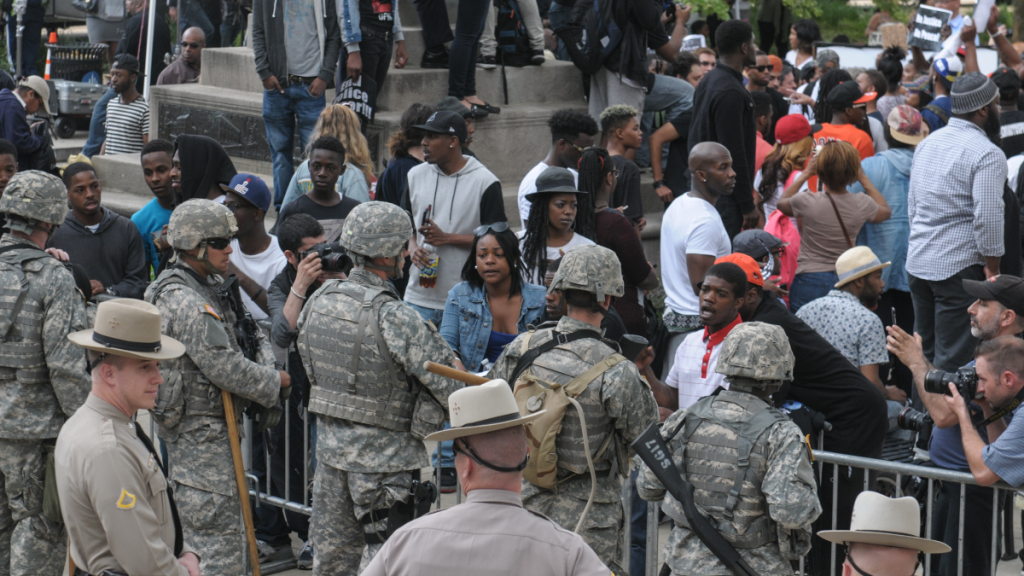
What Causes Police Brutality?
|Criminal Justice
Last month, we noted that a police officer in San Antonio was fired after he body slammed a 12-year-old girl. In addition to his excessive use of force, the officer in question failed to properly report the incident. This case is a win for police accountability, but it’s also just one of the latest examples of excessive use of force by police officers. Over the last few years, cases of people being injured or killed by police have brought national attention to the trends of police brutality and militarization which have increased over past decades. Police brutality and excessive use of force

Freedom of Speech on Campus: "All Lives Matter" vs. "Black Lives Matter"
April 14, 2016
|Free Speech
A recent incident at American University’s School of Law highlights just how divisive the issue of campus speech has become. As the Washington Post reported, it began with a note: Earlier this month, someone left a hand-written flier on the door of a faculty member’s office at American University’s Washington College of Law that read, “All Lives Matter.”"] In response, many faculty and students expressed outrage at what they perceived as racist speech. The phrase “All Lives Matter,” is a not-uncommon response to the “Black Lives Matter” movement which has arisen in the last few

President Obama Visits Cuba, Promotes Freedom
March 30, 2016
|Uncategorized
This month, President Obama visited Cuba, becoming the first sitting U.S. president to do so since 1959. The President has been criticized for normalizing the U.S. relationship with Cuba, in light of the country’s Communist regime and human rights abuses. That list of abuses, according to a 2015 report by Human Rights Watch, includes arbitrary detentions, keeping political prisoners, restricting freedom of expression, and travel restrictions. In a speech given in Cuba, President Obama encouraged more freedoms for the Cuban people, including some that Americans take for granted, protected as they

Free Speech and Censorship: No Swastikas for The Producers
March 24, 2016
|Education
Reason reported last week that a high school production of The Producers has been forbidden from using swastikas: The New York school district that oversees Tappan Zee High School considers the inclusion of a swastika to be offensive and, possibly, a hate crime—regardless of the context. “There is no context in a public high school where a swastika is appropriate,” South Orangetown Superintendent Bob Pritchard told the local CBS station. If you’re familiar with the play, you’ll know that it would be extremely difficult to interpret the production as pro-Nazi."] The Producers, created
The 2016 Election and the Folly of a Brilliant President
March 23, 2016
|Voting
Professor Barry Brownstein has written an excellent piece for the Foundation for Economic Education, titled “The Last Thing We Need Is a Brilliant President.” He writes that in the midst of America’s current race for the White House, people are promoting the brilliance of their preferred candidates, arguing that the right leader will help get the country back on track. But Brownstein questions this argument, citing Friedrich Hayek’s famous essay, “The Use of Knowledge in Society": If we possess all the relevant information, if we can start out from a given system of preferences, and if
Repealing the Law of Supply and Demand?
March 17, 2016
|Uncategorized
With all the excitement of the 2016 presidential election ramping up, it’s even more important to think critically about proposed government policy. Not only are voters biased, they’re often swayed by policies which sound good, but which don’t always have good results. Randal O’Toole, a policy analyst at the Cato Institute, illustrates the careful balancing act politicians take part in when proposing policies which sound great, but have hidden costs. Using Oregon as an example, O’Toole looks at two policies: the minimum wage, and an affordable housing law. On Oregon’s increase in the
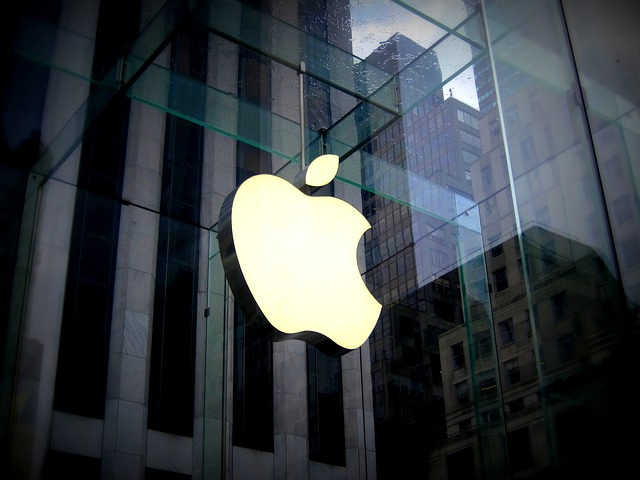
Apple, the FBI, and the San Bernardino Phone Controversy: Explained
March 16, 2016
|Uncategorized
You might have heard some news stories about how the FBI wants Apple’s help to get into the iPhone of one of the San Bernardino shooters. But what’s the big deal with this story, anyway? What’s going on The FBI has asked for Apple’s help to break into a locked iPhone which belongs to one of the San Bernardino shooters, partly because they want to ensure they can get into the phone without the data on the phone being erased. It’s debatable whether that’s a valid reason, according to both the ACLU and NSA whistleblower Edward Snowden. Meanwhile, Apple has resisted orders to loosen
Donald Trump, NASCAR Driver: Success in Business vs Economic Knowledge
February 24, 2016
|Uncategorized
Professor Donald Boudreaux has an excellent piece over at Cafe Hayek, where he rebuts a common argument he’s been hearing lately in support of Donald Trump: Trump has proven time and again he knows his stuff when it comes to economics. He has a personal wealth of $10Billion proving his understanding. Hard to argue with results."] Though it’s debatable whether those results are truly the result of Donald Trump’s business acumen, Professor Boudreaux points out that the claim doesn’t make sense either way. He uses the allegory of NASCAR: To assume that the two domains of knowledge and expertise

Don’t Draft Women. Don’t Draft Anybody.
February 15, 2016
|Uncategorized
The draft has been unpopular for quite a while. Most people don’t like the idea of being forced to fight in a war, and now US citizens have even more reason for dismay: top generals have been suggesting to expand the draft to include women. This isn’t a shocking surprise, given the recent decisions to allow women in the military to serve in combat. Now that women are on equal footing, making only men register for the draft would be unfair. But the solution to this problem isn’t to make women register for the draft, according to Professor Ilya Somin—it’s to get rid of the draft altogether. As

The Danger of Safe Spaces
February 13, 2016
|Free Speech
Yale University is ground zero for the free speech debate. Last Halloween, a professor was verbally attacked for having the temerity to say student should be able to express themselves through their Halloween costumes. Last week, two faculty members took to the pages of the New York Times to discuss the implication of the attack on free speech on campus. “The college years – a time for important growth in autonomy and the consolidation of adult identity and life goals,” they write, “have evolved into an extended period of adolescence during which many of today’s students are not saddled

Are you an authoritarian?
February 10, 2016
|Uncategorized
In a recent Politico story, Matthew MacWilliams identified the one trait which predicts if you’re a Trump supporter. It wasn’t gender, race, age, income, or religion. It’s authoritarianism. Max Borders has broken down what makes someone authoritarian over at FEE’s blog in a great piece: Beware Your Inner Authoritarian. He explores the foundations of people’s views on morality across the political spectrum, and how these have evolved over time. He sums up with this: “First, if you’re not an authoritarian, you should give strong consideration to the importance of checking political

The Gun Control Debate, Explained With Dogs
January 27, 2016
|Civil Liberties
Gun control is a topic which never fails to inspire heated debate. In addition to the vehement passion of groups which support or oppose gun control, conversations about restrictions on gun ownership are further complicated by a lack of agreement and understanding of gun vocabulary. Dan Bier at the Foundation for Economic Education explains: “But another common feature of the gun control debate—the inability of many activists to speak with even minimal literacy about firearms—suggests a bigger problem: proponents of gun control don't even know what they are proposing. I routinely see journalists

What’s Not Being Said About the Wage Gap
January 20, 2016
|Uncategorized
The gap in wages between men and women has been a topic of debate for years. With candidate Hillary Clinton shining light on the issue with promises for a Paycheck Fairness Act, Diana Furchtgott-Roth has addressed what’s not being addressed in conversations about the wage gap: choice. Furchtgott-Roth notes that the differences in wages for men and women have a lot to do with the majors they choose and the jobs they up in, with men more inclined towards the higher-paying fields of math and engineering and women more inclined towards the lower-paying fields of history and language. She writes: “What

Why We Don’t Invade Canada
January 13, 2016
|Uncategorized
Over at Cafe Hayek, Professor Don Boudreaux has outlined an objection (or addition, really) to our recent Learn Liberty video with Peter Jaworski: War Sucks, What Is It Good For? He writes: “Countries whose peoples trade extensively with each other are less likely to go to war with each other not only because people in those countries don’t wish to disrupt the productive and mutually advantageous economic relationships they have with each other. Countries whose peoples trade extensively with each other are less likely to go to war with each other also because these peoples together, through

Biases and Americans’ support for bombing the city from Aladdin
January 6, 2016
|Uncategorized
A recent survey showed that 30% of Republicans and 19% of Democrats said they would support bombing Agrabah. For those of you who haven’t watched Disney’s Aladdin recently, Agrabah is the fictional city in which the movie takes place. While it’s disheartening to realize the level of ignorance about geography and culture a question like this reveals, people’s responses to the question can reveal a lot about their biases. As Daniel Bier writes for the Foundation for Economic Education: “Obviously, nobody who answered the poll had any clue what or where Agrabah was, and half of

The Loopiest Ideas of 2015
December 30, 2015
|Uncategorized
Every year has its own weird economic ideas which crop up. Back in 2012, there was the talk of the economic “silver lining” to the destruction caused by Hurricane Sandy (by people who are clearly not familiar enough with the parable of the broken window). 2015 had its own share of odd economic theory, and Caroline Baum over at Economics 21 has made a list of the loopiest arguments she encountered this year. Among them are some of the same old biases for labor and against immigration, some newer assertions about lower oil prices, and some bizarre arguments about “pent-up demand”. Read the

The Death Star: Building It, Not Destroying It, Was the Catastrophe
December 23, 2015
|Uncategorized
You might have come across this recent article which argues that destroying the Death Star in Star Wars would have economically crippled the galaxy. There are a number of problems with the article, as Janet Neilson at the Foundation for Economic Education points out. The three major causes for concern are: Mistaking the cost of the inputs in the Death Star is its economic value. Treating economic growth and GDP growth as one and the same. Failing to take into account the Death Star’s outputs (death and destruction). As Neilson put it: “...the column fails to consider the Death Star’s
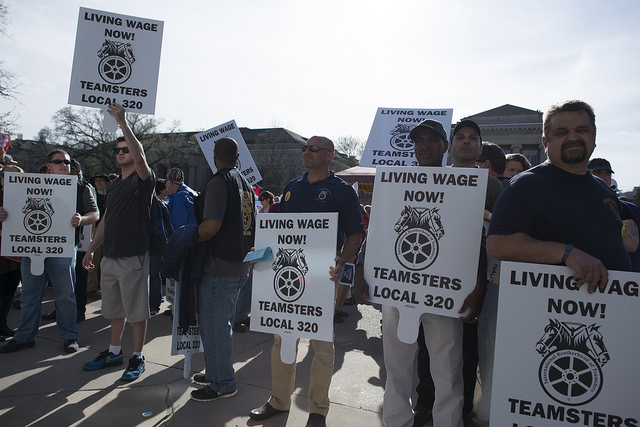
Minimum Wage and Employment: Debunking the Oft-Cited 1994 Study
December 17, 2015
|Uncategorized
Preston Cooper over at Economics 21 has written an excellent piece about minimum wage’s effects on employment. Economics teaches us that when you raise the price of a good, the amount of that good which is demanded goes down. This is true whether the thing for sale is ketchup or labor. Supporters of the minimum wage often respond to this economic principle by citing a 1994 study on the effects of an $0.80 hike in the minimum wage in New Jersey and Pennsylvania. The study found that, in the months after the hike, there was no rise in unemployment in New Jersey (which raised the wage) compared

The Hunger Games as a Political Allegory
December 16, 2015
|Uncategorized
Over at the Foundation for Economic Education, Jeffrey Tucker has broken down the political allegories of the Hunger Games. With the long-awaited finale of the Hunger Games series just recently released, it’s a great time to consider the political implications of the story, especially considering the series’ popularity with young people. Tucker touches on many points—how revolutionaries can be just as bad as the ruling regime, the similarities to U.S. foreign policy, and the inherent problems of democracy. But his key takeaway is this: "The simple lesson of The Hunger Games is that powerful

Black Friday, Thanksgiving, and the Economy: The Economics of Black Friday Sales
December 3, 2015
|Uncategorized
As the holiday season begins, you might be getting a lot of emails about Black Friday sales. Over time, the store openings for many retailers on Black Friday has been getting earlier and earlier, even to the point of stores opening on Thanksgiving. Check out the chart below for opening hours over time for some major retailers: But despite all of this hype over Black Friday sales, consumer spending has fallen. The Manhattan Institute explains it like this: It used to be that you would eat on Thursday and shop on Friday (or work on Friday). So what happened? The 2008 financial crisis and economic
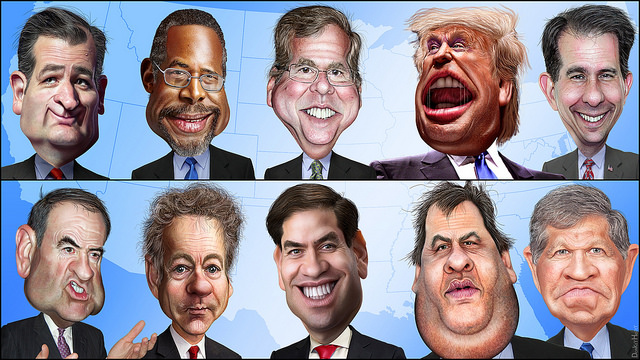
Republican Debate: More of the Same?
October 29, 2015
|Government
Last night’s Republican debate was two hours of 10 candidates doing their best to distinguish themselves from the many people hoping to win the 2016 presidential election. While there were some generally agreed-upon winners (Marco Rubio and Ted Cruz) and losers (Jeb Bush, and for some the CNBC moderators), the debate itself was underwhelming. Was it just us, or did all the candidates sound...the same? The problem of politicians sounding the same isn’t just limited to primary elections. Even once candidates receive their party’s nominations, we’re likely to hear a lot of the same talking
Liberty, delivered to your inbox!
Want to know more about Student For Liberty’s impact, new initiatives, and other efforts made to advance liberty around the world?
Sign up for our email newsletter to stay connected.
Subscribe Now

